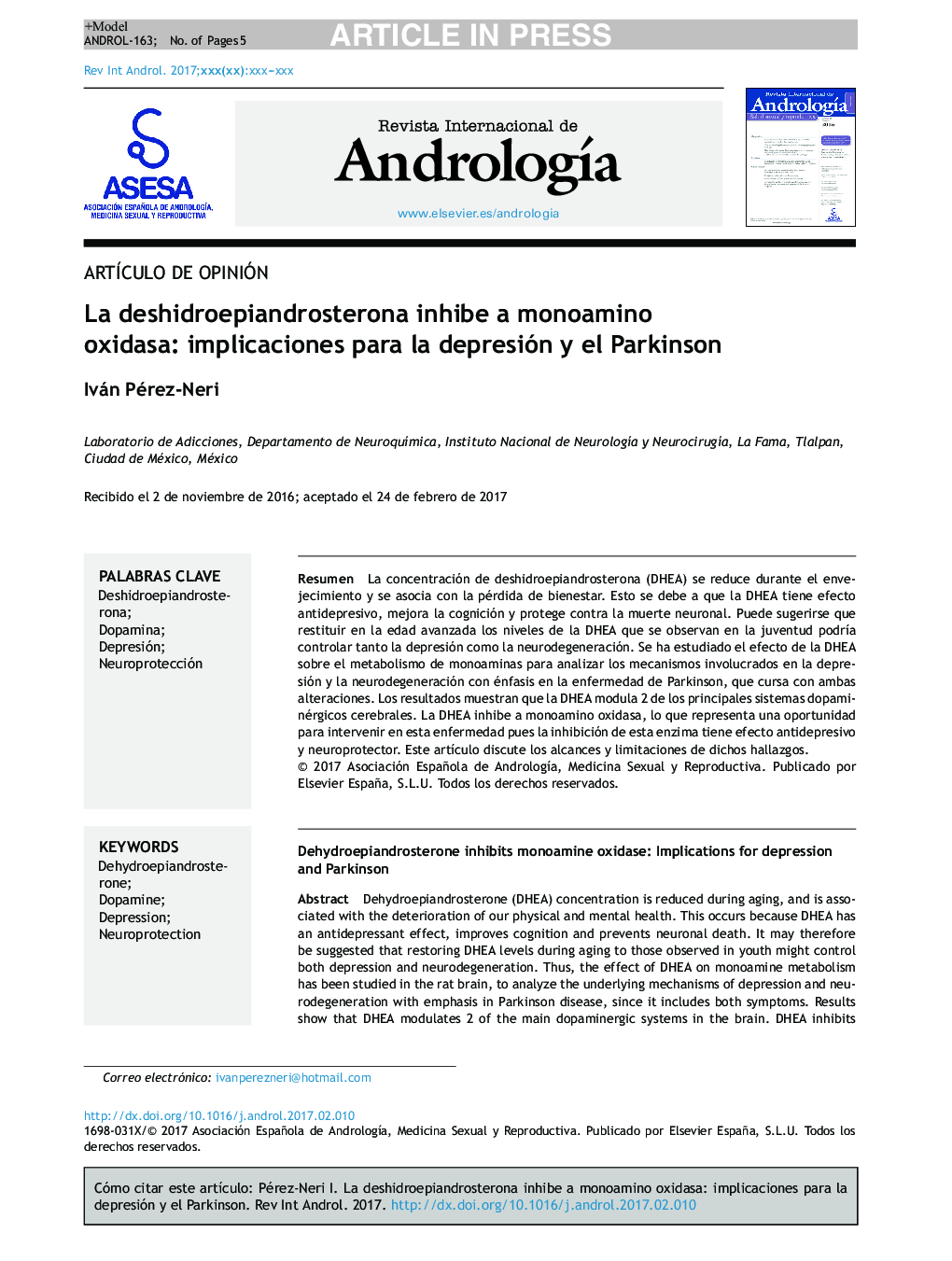| Article ID | Journal | Published Year | Pages | File Type |
|---|---|---|---|---|
| 7271380 | Revista Internacional de Andrología | 2017 | 5 Pages |
Abstract
Dehydroepiandrosterone (DHEA) concentration is reduced during aging, and is associated with the deterioration of our physical and mental health. This occurs because DHEA has an antidepressant effect, improves cognition and prevents neuronal death. It may therefore be suggested that restoring DHEA levels during aging to those observed in youth might control both depression and neurodegeneration. Thus, the effect of DHEA on monoamine metabolism has been studied in the rat brain, to analyze the underlying mechanisms of depression and neurodegeneration with emphasis in Parkinson disease, since it includes both symptoms. Results show that DHEA modulates 2 of the main dopaminergic systems in the brain. DHEA inhibits both monoamine oxidase (MAO) isoforms (A and B), which represents a therapeutic opportunity for this disease since MAO A inhibition yields an antidepressant effect, while that of MAO B is neuroprotective. This paper discusses the goals and limitations of our findings.
Related Topics
Health Sciences
Medicine and Dentistry
Surgery
Authors
Iván Pérez-Neri,
